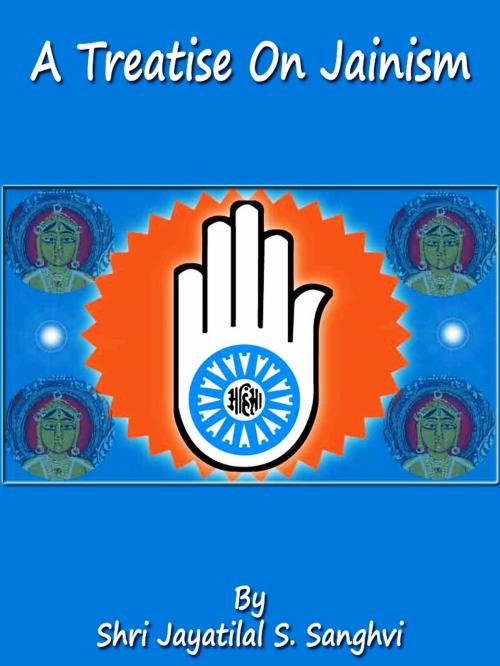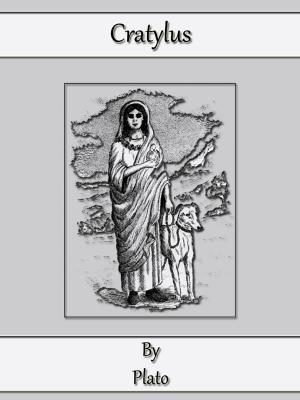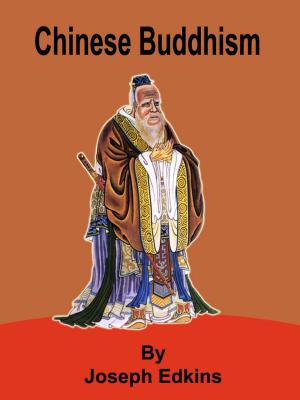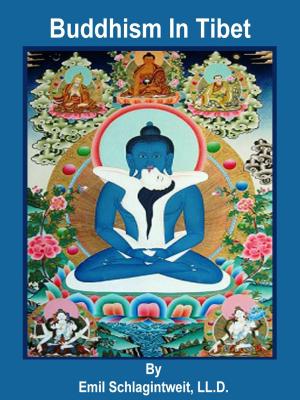| Author: | Shri Jayatilal S. Sanghvi | ISBN: | 1230001467482 |
| Publisher: | Bhoomi Digital Apps. | Publication: | December 12, 2016 |
| Imprint: | Language: | English |
| Author: | Shri Jayatilal S. Sanghvi |
| ISBN: | 1230001467482 |
| Publisher: | Bhoomi Digital Apps. |
| Publication: | December 12, 2016 |
| Imprint: | |
| Language: | English |
A Treatise On Jainism
By Shri Jayatilal S. Sanghvi
"Jainism, traditionally known as Jain Dharma, is one of the oldest religions in the world. It is a religion and philosophy originating in ancient India. The Jains follow the teachings of the 24 Jinas (conquerors) who are also known as Tirthankars. The 24th Tirthankar, Lord Mahavira lived in ca. 6th century BC. One of the main characteristics of Jain belief is the emphasis on the immediate consequences of one's behavior.
Jains are a small but influential religious minority with at least 4.2 million practitioners in modern India and more in growing immigrant communities in the United States, Western Europe, the Far East and elsewhere. Jains continue to sustain the ancient Shraman or ascetic tradition.
Jains have significantly influenced the religious, ethical, political and economic spheres in India for over two millennia. Jainism stresses spiritual independence and equality of all life with particular emphasis on non-violence. Self-control is vital for attaining omniscience (kevala jnana) and eventually moksha, or realization of the soul's true nature.
A Jain is a follower of the Jina, or spiritual victor. Per ancient and contemporary usage, as well as dictionary definitions, a follower of Jain Dharma, or Jainism, is called a Jain. The term Jainist which is found on some internet websites is not used in either literature or common parlance.
Jains have an ancient tradition of scholarship. The Jain community is the most literate religious community in India, and the Jain libraries are India's oldest."
A Treatise On Jainism
By Shri Jayatilal S. Sanghvi
"Jainism, traditionally known as Jain Dharma, is one of the oldest religions in the world. It is a religion and philosophy originating in ancient India. The Jains follow the teachings of the 24 Jinas (conquerors) who are also known as Tirthankars. The 24th Tirthankar, Lord Mahavira lived in ca. 6th century BC. One of the main characteristics of Jain belief is the emphasis on the immediate consequences of one's behavior.
Jains are a small but influential religious minority with at least 4.2 million practitioners in modern India and more in growing immigrant communities in the United States, Western Europe, the Far East and elsewhere. Jains continue to sustain the ancient Shraman or ascetic tradition.
Jains have significantly influenced the religious, ethical, political and economic spheres in India for over two millennia. Jainism stresses spiritual independence and equality of all life with particular emphasis on non-violence. Self-control is vital for attaining omniscience (kevala jnana) and eventually moksha, or realization of the soul's true nature.
A Jain is a follower of the Jina, or spiritual victor. Per ancient and contemporary usage, as well as dictionary definitions, a follower of Jain Dharma, or Jainism, is called a Jain. The term Jainist which is found on some internet websites is not used in either literature or common parlance.
Jains have an ancient tradition of scholarship. The Jain community is the most literate religious community in India, and the Jain libraries are India's oldest."















